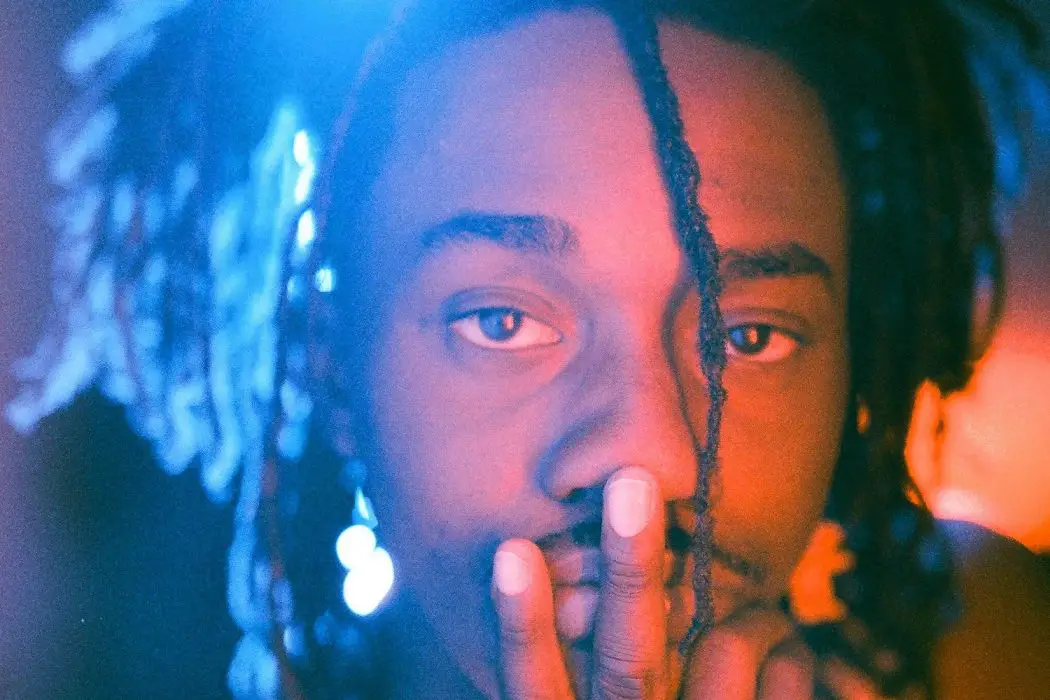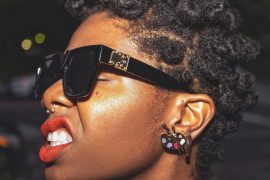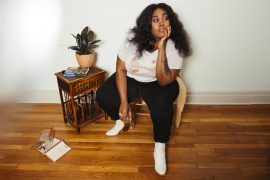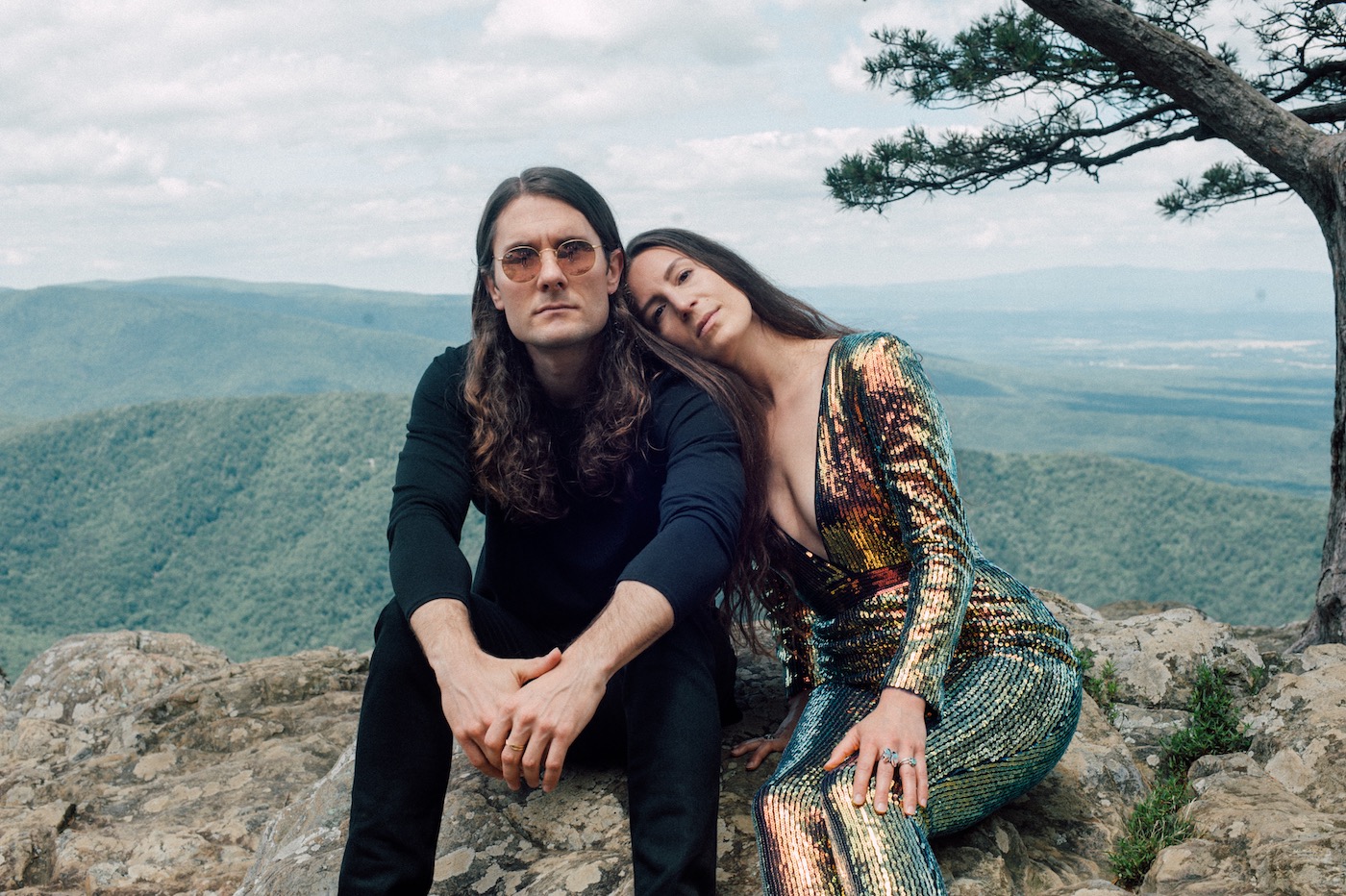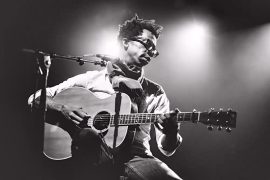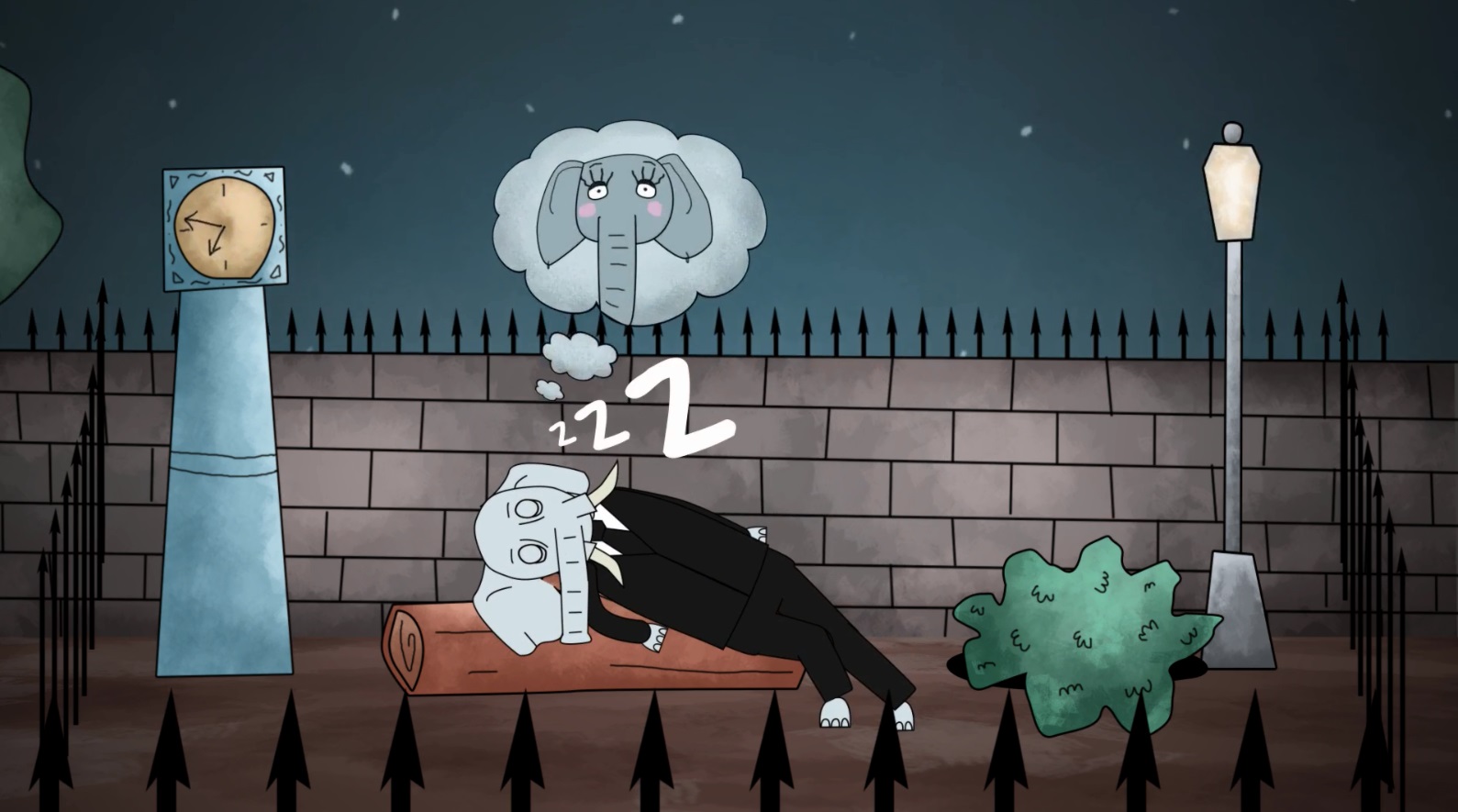Chicago rising star Ric Wilson discusses his woke, feverish anthem “Fight Like Ida B & Marsha P,” the Black Lives Matter movement, his place at the intersection of hip-hop and funk, recent projects, and much more.
“Fight Like Ida B & Marsha P” – Ric Wilson
For the last three years at every show we had, I make everyone put their fist up and I do a chant, I say no homophobia, no transphobia, no sexism, no racism.
Chicago’s rising star Ric Wilson is a lover, a fighter, and a leader in the making.
Unapologetic and forever true to himself, the 24-year-old is an inspiration for all artists who believe in themselves, their sound, and their art. With a relatively small team, he has independently released three stunning solo EPs over the past four years, carving out his own niche at the intersection of hip-hop and funk that embraces a wealth of colors, textures, beats, and topics.

Despite the pandemic, 2020 has been one of Wilson’s most defining years yet – seeing him release a stunning collaborative EP, They Call Me Disco, with Terrace Martin in May. Consisting of six sweet, soulful, and seductive songs that cover everything from prejudice and social unrest, to our individual search for purpose and meaning, They Call Me Disco is a sunny burst of those good vibes for which every summer yearns. It’s a hot display of musicianship, deep grooves, and heavy cuts from both Martin and Wilson, breathing life back into disco and giving it a bold new coat of paint.
Way beyond space and time
Floating into nothing turning into rhymes
Not over thinking the shit I thought to say
Brother walking and I’m dying anyway
Got a mask on my face at the chick-fil-a
I just wanna be on right side of history
Whats the purpose?
Global warming is swarming around beyond the matrix
Why we out here killing for colorism and hatred?
Couple things Iv’e been through
Got me having visions that I think it might end soon
Running from depression, but this imminent found you
Talking to my self up in these crowded ? rooms and view
Think I’m wasting my life
Walk with my mouth and I sleep with my eyes
Why do I see color?
When I’m living in gray, I’m living in gray, I’m living in gray
– “Beyond Me,” Ric Wilson x Terrace Martin
If that weren’t enough, mid-June saw the release of Wilson’s invigorating fight song “Fight Like Ida B and Marsha P,” a protest anthem that says so much in its feverish three-minute run. “Blazing with passion and conviction, this song is straight fire from start to finish [as] Wilson spells out his case for black womxn and trans womxn’s rights,” Atwood wrote in earlier coverage. “It’s an easy message to get behind, and one made all the more exciting by Wilson’s spellbinding presence and dynamic delivery.”
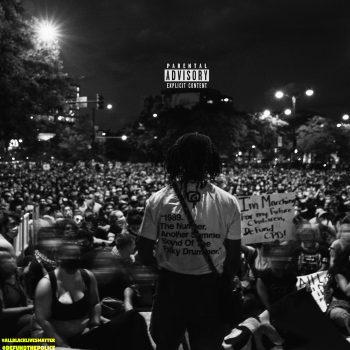
“I wanted to make a song that was a voice,” Wilson says, “That was gonna be the voice for the people who are the ones that come up with the hashtag, say her name, defund the police, abolish the police. I wanna make the song for those people, because they’re the ones shaping this movement… Where’s the song for the people who started saying, “Defund the cops, the police?!” No rappers are making songs for that.”
Notably named after two women – a prominent civil rights activist, Ida B. Wells, and a prominent LGBT activist, Marsha P. Johnson – “Fight Like Ida B and Marsha P” is a call to action that speaks directly to this moment in history.
“Every time an uprising happens, people talk about the same three fucking names: They talk about Martin Luther King, Malcolm X, and the Civil Rights Movement,” Wilson explains. “What if there was a revolutionary song where little boys were hearing the song where it’s like, fight like two women or fight like two of femme people? I feel like that’s really dope, and I feel that it’s more impactful and empowering and kind of helps dismantle sexism.”
they ain’t never showed no love
Like the worlds against us
Being born with no luck
and mourning in stuck
Fight the power
Like chuck
Raising against
The machines
And not giving fucks
Paint us all with one slug
We know war on the drugs
Mean war on black thugs
Politicians just shrug
ain’t no help from above
They don’t wanna see us
Don’t wanna see us
Up up up up up
– “Fight Like Ida B & Marsha P,” Ric Wilson
Uplifting, inspiring music with a fresh flow, this is the kind of catchy, soaring song that reminds us to always believe and never give up the fight. Wilson brings it all home in a fiery refrain that’s as memorable as it is meaningful; “Politicians just shrug, ain’t no help from above, they don’t want to see us up, up, up, up, up up… everybody, fist up, up, up, up…. Everybody go up, up, up, up, up…” It’s an evocative message – one made even more special by the freedom fighters Wilson names atop his own chants, as well as the tasteful, finessed production (courtesy of producer Norbert Bueno, which includes the haunting sounds of a police radio going off and more).
A song of courage and a song of might, “Fight Like Ida B and Marsha P” is easily one of 2020’s best releases and a truly defining sign of the times.
Recently named an Atwood Editor’s Pick, its words define so much of what the Black Lives Matter movement is all about, and yet it could just as easily stand alone in the years to come, giving new generations of listeners the support they need to stand up against new injustices in their own communities. It’s certainly one of Ric Wilson’s greatest milestones, yet another powerful example of how he stays true to himself and his music.
“The whole ‘arts’ part of it is what drives me – I’ve always been trying to get better and not bigger, and that’s been helping me out a whole lot,” Wilson says. With a excitingly mysterious collaboration in the works and his years-in-the-making debut album slated for a 2021 release, Ric Wilson is on the verge of a breakout.
Harriet Tubman was a freedom fight
And she taught us how to fight
Charlene Carruthers is a freedom fighter
And she taught us how to fight
Mia Henry is a freedom fighter
And she taught me how to fight
Atwood Magazine dove deep with Ric Wilson, discussing everything from “Fight Like Ida B & Marsha P” and They Call Me Disco to the Black Lives Matter movement and activism, his place at the intersection of hip-hop and funk, and more. Get to know Ric Wilson in our unabridged interview below!
Don’t try to chase something that’s a sound of the time, because times change… People are gonna go back to you because they want to listen to something that you have specifically.

A CONVERSATION WITH RIC WILSON
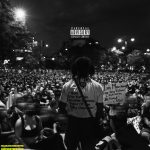
Atwood Magazine: Hey Ric! First of all, we can’t have this conversation without acknowledging the pandemic and the Black Lives Matter movement that’s been growing around the country. How are you and your family doing?
Ric Wilson: We’re doing fine, I’ve been arguing with everyone, my family. When it first happened, everyone was just like, “Yes!” then everyone was just like, “No to the looting and rioting.” Me… I’ve been working on this argument to defend whenever rioting or looting happens for years, so I was prepared. So, other than that though, everyone in my family is doing good.
That's good to hear, I'm glad to hear that. What's the Chicago experience been like for you over the past couple of months?
Ric Wilson: Well, it was missing all my friends and not seeing anybody until what? May 30th, and then uprising, and then I kinda jumped into… I was jumping into a world that I wasn’t really in before. I’m at rallies, I’m at demonstrations, I’m trying to help facilitate and organize different sort of marches and whatnot. But then I also saw something different that I’ve never seen, and I’ve seen so many people just ready to get out in the street and say something or let their voice be heard or let everyone know that they do care about human rights, and they wanna be out there and let everyone know that, everyone around them are comfortable – like, other white people. So that’s what I’ve seen, I’ve started seeing… So in Chicago we got suburbs and outside of Chicago, pretty much outside of Chicago, if you go 45 minutes outside of anywhere in Chicago it’s Trump country. And I saw a bunch of different suburbs and kids from Trump country, organizing their own rallies and marches and demonstrations, and to me it was kinda like, “Oh, we’re somewhere different than we were five years ago.” So that was really, really good. Hell yeah.
It definitely feels different this time around. How do you as an artist reckon with this moment, do you feel any extra responsibility to speak up at a time like this?
Ric Wilson: At first I always see them just like, “Oh, let’s see where things kind of go.” And then when there’s a lot of people talking, I feel like a lot of people are always like… They start using in-factual information to push certain agendas, I call it “copaganda,” or anything that is very anti-black agendas. That’s when I have to speak up. That’s why I’ve been a little more vocal – hella more vocal than I have been in the past years. I’ve also been tweeting and talking about it at my shows, bringing the same energy for years. For the last three years at every show we had, I make everyone put their fist up and I do a chant, I say no homophobia, no transphobia, no sexism, no racism. And from there I just see the world, my imaginary world just created for this crowd. And I’ve been trying to create that world around me everyday. I guess I am more active… It’s crazy because right before quarantine I was definitely trying to stop tweeting as much [chuckle] and post on Instagram as much. All of a sudden, boom! I’m on Instagram and tweeting all of the time now. It’s Black Mirror as fuck.
You want to see positive change, and you have to be an activist because it's part of what you want to see in the world. It's one of those things where it’s just intrinsic to you, and what you're telling me is that your art has already been like that for a long time, that you have already been trying to spread that message for a long time. So if everyone else's voice is getting louder and you get louder, so be it.
Ric Wilson: Yeah.
I’ve been listening to “Fight Like Ida B & Marsha P” at least once a day since its release. Lyrically, this song captures so much of the messaging of the Black Lives Matter movement. Listening to it has really captured this moment in time for me, and I was hoping we could start by talking about it. I feel like it’s you really speaking up. Where did this song come from?
Ric Wilson: The song came from me and Norbert Bueno, who produced it. I met Norbert at this festival called Treefort Music Festival in Boise. He’s playing with this artist, and he was just like, “Y’all got some beats, you should come through, we should make some music.” And I was like, “Easy, period.” So I came through to where he lives in Salt Lake City a year ago in April, and he made the beat right in front of me. That’s when I created the hook and this first verse. And then the second verse is from another song we did – it was a really quirky movement song, and I wanted to make something that was a little bit smoother. We rewrote the verse like twelve times to make sure everything I was trying to say, I could put it in this second verse – so that everyone I was trying to make this song for could feel included. So that’s where the song came from.
And then, so it’s crazy, Ida B. Wells led an anti-lynching crusade here in the US. And she died here. She lived and died in Chicago. And my mom grew up in the project building called Ida B. Wells here in Chicago. My mom grew up there since she was like a baby, a kid. That’s how I found out who Ida B. Wells was initially. I also learned about Marsha P. Johnson early on – I grew up in this program called The Chicago Freedom School and I remember… There was a book, or I think it might have been a documentary on who Marsha P was. That’s why I’m super happy that a lot of people are talking about Marsha now because she’s super dope. Every time an uprising happens, people talk about the same three fucking names. They talk about Martin Luther King, Malcolm X, and the Civil Rights Movement.
And I wanted to kind of, “What if there was a revolutionary song where little boys were hearing the song where it’s like, fight like two women or fight like two of femme people?” I feel like that’s really dope, and I feel that it’s more impactful and empowering and kind of helps dismantle sexism (a little bit). People are like, “Fight like Ida B.” And people say, “What do you mean fight like Ida B?” Well, Ida B. Wells walked around with two pistols on her hip and said, “If you try to lynch me or you wanna rile me, I’ll shoot you.” Marsha P. Johnson literally threw a shot glass at a mirror and then threatened a cop and said, ” Stop fucking harassing me.” That’s fighting. If I’m gonna fight like anyone I’m trying to fight like those two people. So that’s why I named the song that.
I didn't know that about them, thanks for sharing. Having those names and voices there, it does make this song feel fresh and different. It's amazing, with your urges to rise up, the song captures this presence so well. But obviously, it's a long time coming. This song wasn't written in the past two months. This demand for justice and equality is sadly nothing new. Were you waiting for the right time to release it? What was it about the past couple of months that made it feel like it was ready to go?
Ric Wilson: I had no interest to ever release this. I thought it was like a house-y track, but I hadn’t written the second verse yet and I felt like it didn’t have enough depth to it. I remember we submitted this song to a soundtrack for Fast and Furious, but they didn’t use it. My manager called me in the middle of June and was just like, “Man, you should put the song out.” Being the manager, that’s what they’re supposed to do. He’s trying to figure out how to advance the career… Make me be a voice of something, I don’t know.
I don’t wanna seem unauthentic. I don’t wanna seem like I’m looking at this moment and I wanna make a song. But then all these people started dropping songs that were… It was a lot of in-factual things. ‘Cause I don’t like the word PC. I just say something’s are just in-factual or fallacies, fallacies within a song. Some rapper dropped a song called “BLM Remix.” He’s talking about fucking up the cops and he’s talking about killing other Black people in the same verse. And there’s some songs that I feel like just weren’t being the voice of the people that are actually shaping the movement. Where’s the song for the people who started saying, “Defund the cops, the police.” No rappers are making songs for that. Actually, rappers are having a lot of songs that are very, very passive and cop apologetic.
So I wanted to make a song that was a voice: That was gonna be the voice for the people who are the ones that come up with the hashtag, say her name, defund the police, abolish the police. I wanna make the song for those people, because they’re the ones shaping this movement. I don’t want some rapper that is in love with police officers to try to define the movement that they didn’t shape. So I wanted to make a song that people can just at least have, and then it can be all of their songs and not just my song.
So I wanted to make a song that was a voice: That was gonna be the voice for the people who are the ones that come up with the hashtag, say her name, defund the police, abolish the police.
Like we were talking about earlier, you found yourself in a corner almost having to speak up.
Ric Wilson: I feel like when you are Black you really are forced into activism, or you’re forced into denial. You’re forced into me, or you’re forced into Terry fucking Crews, so yeah – which might be a good thing! [chuckle] And I would choose to be me. I could choose to be an activist; I wouldn’t choose to be Terry Crews. You can keep that in.
I remember when I was younger, I’m just tired of telling Black people they are their own problem. It solely is their issue. There’s been policies and things created for centuries to keep a certain group of marginalized people suppressed and oppressed. For years, policies created. And that’s why women can’t succeed like men can. That’s why Black people and Brown people can’t exceed like straight White men can. That’s the reasons why gay White men can’t exceed like Donald Trump. And I feel like I’m tired of telling them that they’re the reason that they’re oppressed. And I think that people like Terry Crews do that, which is not cool.
Your chorus is absolutely invigorating; what inspired this call to action, to get “up, up, up”?
Ric Wilson: It’s so wild actually. I wrote the chorus in regular everyday life, in April 2019. The night before I had watched Blade. Have you ever seen the first Blade? It’s that club scene where he’s walking in the club, but he’s moving slow… Everyone’s moving fast in slow motion, and he’s just walking looking at them and it’s the music that kinda goes like that. I was like “Oh damn, the beat sounds like some shit that would be in Blade.” So I was like, “We’re in the club, up, up, up.” But I didn’t want to make it a dance or party track. So what if it’s a track that empowers you and you’re also dancing to it? That was the initial thought a year ago.
Then I got new management and Terrace Martin and I decided to drop an EP, then we pushed back my album and now we’re probably gonna go to LA and do another EP with somebody else. This is probably gonna be a really, really crucial to my career – or just exciting and really dope. So that’s gonna push the album back again, and then there’s COVID. So I have all these songs, there are 300 or 400 just ideas just sitting there. But I was like, “I need to drop this song or else if I don’t drop this song, the sound of the movement is gonna be something really fucking stupid.” And I want people to have the Yin and Yangs, whatever they wanna listen to. So that’s why the song dropped – but the up, up, up, up was more of a fist thing, it was like a fist-pumping thing, like a dance move. The beat is awesome.
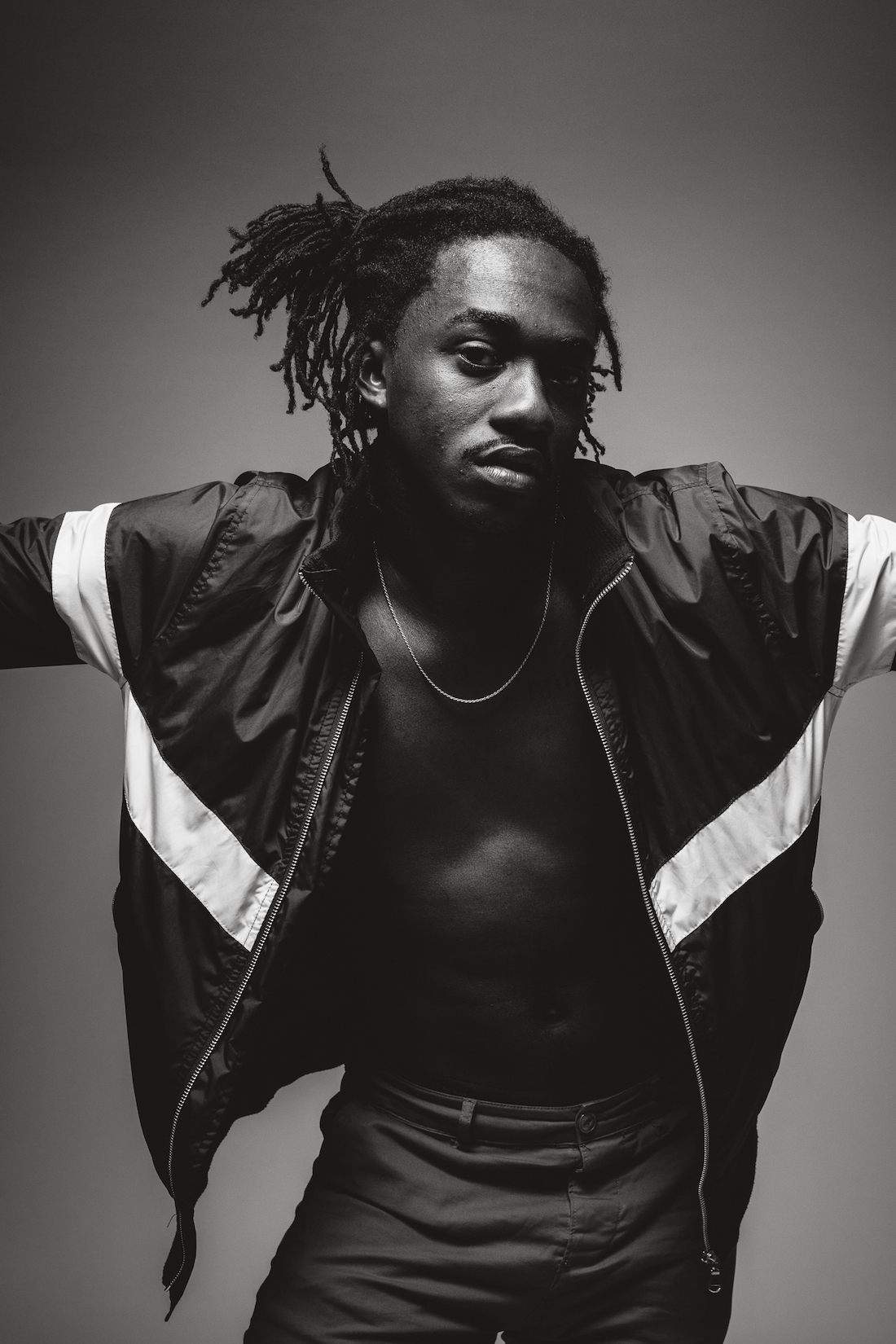
I love how it's one of those classic examples where an artist originally means one thing and then the song itself takes on a whole new life of its own. In addition to the various evocative vocal effects and instruments that give this song is powerful voice, we also hear another speaker at the end saying, “I dedicate myself to the revolution, and the revolution don't stop.” Who is that, and why include that as the outro?
Ric Wilson: That’s Crista Noel, an organizer here in Chicago. [It goes alone with the] idea that it’s not just a song, it’s not just my song, it’s all of our song. Revolution don’t stop. That’s why I wanted to bring that in, bring it back in the song so people can hear that piece, which I think really helped. Crista, she’s the first person I ever heard that tweeted Say Her Name and really made the hashtag #SayHerName big. She was really, really pushing hard to get the cop that killed Rekia Boyd in Chicago arrested like six years ago.
I am the revolution
And the revolution don’t stop
I am change
Soon we will make a change that will change it all
I am courage
Courage to move the masses forward against
those that will sit and stay and not move
I am movement
Moving all the place where we will be judged
by content of our character and not the color of our skin
I am my skin
Color of my people who toiled the land
of America and made it great
I am great
Great because I dedicate myself to change
I dedicate myself to my people
I dedicate myself to the movement
I dedicate myself to the revolution
What are you most proud of about this song?
Ric Wilson: This is the first song that I kinda had to… So I mix all my records, all my songs. And I have the stems, and I didn’t spend too long trying to perfect it. I mastered it myself, I did the leveling out and everything myself. When I put it out I was like, “Okay, no one’s gonna hear this,” you know what I mean? I’m so used to dropping songs and getting excited for 100 plays. You just have to put it out there and let it happen, and I’m glad that people found it. I’m really, really happy that John over at Spotify put it on his Power playlist. I think that really helped it a whole lot. It also motivate me a whole lot too, because I’ve been feeling kind of overlooked for a lot of shit that happens. I’ve been putting out some dope music for the last two years and I feel like, “Why isn’t this song getting playlisted?” And we just found ourselves on Power, it was put on the right playlist, and then boom, the right people catch onto it!
It justifies your hard work. Speaking of, I took a deep dive back to your earliest songs, from “Lone Pools” and “If I Was White” to “Soul Bounce” and more. You've been talking about topical and important issues from the beginning and it sounds like you were always somebody who had a strong identity and a desire to use his voice for more than entertainment. Who were your early musical influences, and what do you think you were trying to share about yourself in these tracks?
Ric Wilson: I think early influences are Stevie Wonder. He has a lot of songs that are very – people will call them political, or just literally talking about every day life, but putting a lens to it, just a critical lens. Stevie Wonder does that. I love Chuck D, I love “Fight the Power” specifically. I was studying that song while I was finishing “Fight Like Ida B and Marsha P.” This is a protest song, like people aren’t making protest songs anymore, people are making slower “we shall overcome” songs, and I think “Fight the Power” is a great protest song. I love some of the songs by 2Pac, early Kendrick Lamar. These are my people that I listen to that inspire me to write these certain things that I write –things I do, and why, how. Early Black Eyed Peas was sick.
Many of the artists that you've named are people who wrote music that broke the mold. You mentioned Stevie Wonder, and Songs in the Key of Life came to mind as such a revolutionary record. And of course “Fight the Power” is one of the best protest songs of all time.
Ric Wilson: Yeah, which came like less than 40 years ago. This is the thing.
I heard so many influences in your early work; how do you think you've grown as an artist in the time since those first songs came out?
Ric Wilson: I think it was after Negrow Disco, which was my second EP – I’ve claimed 3 EPs: Soul Bounce, Negrow Disco, and Banba… After Negrow Disco, I felt like people didn’t… I came up in poetry and performative protests and open mics, and I felt like people weren’t appreciating my lyricism, so then I sat down and really tried to rap a little bit, which I did more of on Bamba… I feel like I’ve been better at rapping and performing. The whole “arts” part of it is what drives me – I’ve always been trying to get better and not bigger, and that’s been helping me out a whole lot. I’ve seen people that focus on trying get bigger and not better, and a lot of them aren’t around –people aren’t talking with them, or things slow up for them. I think if you just focus on the art, you just get better. Andre 3000 is a big Black influence on the way I rap – he and Jay Electronica. I think both of them are trying get better as artists as well.
The whole “arts” part of it is what drives me – I’ve always been trying to get better and not bigger, and that’s been helping me out a whole lot.
I didn't know that about you – that you came up through poetry like that. You rap, but I never necessarily thought of you as “a rapper.” Take that as you will, I think I kind of have looked at you more as a multi-dimensional artist of sorts. One thing that really struck me from the beginning was how your music had so many parts to it – it seems like you've always existed at this interesting intersection of hip-hop and funk. Did that space already exist for you, or did you have to create it for yourself?
Ric Wilson: Hip-hop and Funk. I had to do that music. And at the time, things were moving slower for me ’cause nobody was making music and shit I like. In the scene in Chicago that I’m in, a lot of people didn’t really get it for a long time, until everybody else started getting it. There were people around me that could have made things way faster for me, if I went and did a song with them. They didn’t get it until Funk started coming back into play. I remember when Anderson .Paak started rolling up, and then people really fused the uptempo and hip-hop. And I was just like, “Okay, this is like coming into play.” When I started writing in Chicago, it was the drill scene, nothing but drill music. Everyone was making that music – I’ve always been into making this music that sounds like this, and it just didn’t really click with people.
But now everyone’s… Now it’s starting to pick up a little bit, people have been taking me on tour, because I’ve been making the music I’ve been trying to make and trying to stay true to myself, and trying to focus on getting better. I’ve been able to meet and actually go on tour with really talented musicians. I went on tour with Cory Henry and the Funk Apostles – them and Wolf Deck are probably the two best bands in America, literally right now. And through that, I’ve been learning, meeting all these really cool people. I’ve opened up for The Roots! I think sometimes we just like… I would just [anyone coming up] to stay true to whatever sonic thing they got, and just try and get better at that sound that they’re trying to create. Don’t try to chase something that’s a sound of the time, because times change all the time. People are gonna go back to you because they want to listen to something that you have specifically, that’s yours and not everybody else’s.
I really respect that – you've talked a few times about staying true to yourself, and it sounds like getting better, not bigger is a personal mantra.
Ric Wilson: Oh yeah, that’s definitely the mantra for sure.
It's not easy.
Ric Wilson: Think about what it’s like, this mantra is that that’s the people we love: Like Frank Ocean, Andre 3000, Tyler The Creator, Anderson .Paak, these are people that literally focus on getting better not bigger.
Well I really enjoy and I have so much respect for what you are doing, because you don't let time get the best of you, you don't seem to get bogged down in that, and you are true to your art – and it really feels like that when you're making music, that you're making art. So then you have this experience that brings you with such a talented artist in Terrace Martin, and you two created the EP They Call Me Disco. That to me, is one more badge to be proud of. What is this project all about for you?
Ric Wilson: [chuckle] It was funny, ’cause me and Terrace are very similar and very different at the same time, and when we met, he said, “What you wanna to do?” And I said, “Let’s just make music.” We weren’t even thinking about a project, there was no name for it, anything. And we just started making up songs. And I remember two of the songs he had, the beats he had, and all other beats we made right in front of each other. And I’ll never forget when… The last song we made was the first song, “Breakin Rules”, and the management was like, “We need to go over there, we need one more song.” I was just like, “Alright. Let’s go in there.”
I was just playing disco music for 30 minutes, I don’t even notice what I’m doing. And he’s like, “What’s this?” And it’s a song called “Confrontation” by Homegrown Syndrome and I was like, “Yo, this is like one of my favorite disco songs.” And I said, “Let’s make something like this, let’s make something with no boundaries.” And he goes in, and the whole beginning of “Breakin Rules” he just does the whole intro right in front of me, it was fucking crazy. And then from there I was just like, “Oh, yeah.” So that’s why I think that it was fun, and then we took all the songs and we were like, “Um, let’s strip this, let’s strip this, let’s strip this,” and I said that, They Call Me Disco. That’s how it happened, it wasn’t like an, “Oh, we’re gonna make this song, this is gonna be the intro, this is going to be this”… A lot of times people get into studio and they just make songs, and then they just put it together, and they’re like, “Okay, well, we’ll call this thing this.” Why would we call it that? We have to connect all the dots.
That’s impressive! I know you talked about producer experience, writing experience, and some singing experience. Did you grow up on any musical instruments as well?
Ric Wilson: No, I didn’t grow up on musical instruments. I grew up in church. I grew up in church and my church is a big music church. And I grew up in church choir. I grew up with a lot of music around me, but I didn’t grow up playing any instruments (which I wish I would have) – I grew up playing basketball.
What's great about your music, I think, is that it embraces so many instruments, and obviously we feel that the heaviest with They Call Me Disco. It's inspiring, the way that you two brought so many other sounds into the room such that we know you're not alone in creating that music.
Ric Wilson: I definitely was not. Terrace played a lot of that shit, which was crazy. Sometimes Terrace had a whole drum kit set up and it’d just be like, “Oh.” ‘Cause a lot of people don’t know, a lot of those drums are live drums. Terrace played these drums right in front of me. And then the engineer puts it in. It was great. It was cool. I was like, “I wish other people could see this.” You know what I mean? We didn’t use… I remember there was an interview I saw and Quavo was saying that it’s his first time ever hearing someone record, singing without auto-tune, was in 2019. It was CeeLo Green. And I think that’s so interesting to me, ’cause we didn’t use auto-tune at all.
Nothing against auto-tune, I’m just thinking… I remember Terrace just knew the key to everything when he was playing. I just really appreciate the fact that I am creating around real musicians. And then also I have a band. A lot of my records have violin and trumpet, etc. I’m kind of making all of these records for the same people, so it’s cool. I guess we are making music.
Do you have any favorite songs off, They Call Me Disco?
Ric Wilson: I like “Before You Let Go” because the beat is really dope. And I like the weird… It has this distortion feel to it. And I like “Beyond Me.” With “Beyond Me”, I thought, “I’m just gonna show Terrace the part that I can rap.” I’m not gonna be out here like Kendrick, but I can fucking rap. I remember I picked that song, and I wrote that rap with Terrace, that’s when Terrace said, “Oh okay.” He said, “Okay.” So that was dope.
It sounds like this EP was something that was never... Never on your mind. And then, you just ended up making all of these songs together, and how could you not put it out?!
Ric Wilson: Literally that, I was on tour with Cory in October, and we were supposed to drop that album in November, but we did not drop that album. And that’s what brought me to LA and started a whole project with Terrace Martin. And I didn’t even know what I was starting yet. I was like “Well, shit,” so… [laughter]
This album better come out, man. I don't know.
Ric Wilson: It’s not coming out this year ’cause of COVID. Also I have a crazy collab project that’s coming that you wouldn’t even… You’d go like, “How the fuck did you guys even know each other?” This dude is legendary, but also of the times.
Ugh, way to say a lot of things and nothing at the same time!
[laughter]
But you know what, this is a great way to keep 2020 going. You have two really, really solid projects between just “Fight Like Ida B and Marsha P” and They Call Me Disco. Between those two, there's so much going on for people to get to know you. What excites you most about your music right now?
Ric Wilson: What’s exciting me more right now is two things. One is that we have four videos for the EP that we have not even dropped yet, and one of them is a full on animated video that we did during quarantine that was prepared to drop, and we did not drop. And so I’m excited, ’cause I’m like, “Damn, I have all of this content.” And then two is that, I listen to beats and then I do spacing, mumble melodies and stuff. And by like spacing the melodies on faster beats, I found that I’m getting way more natural and better. I’m like “Damn, I can start to become a better singer, vocalist.” So I’m really excited today specifically. I’m gonna watch a movie on Hulu called Border, and then I’m gonna go sit in my car and write to these new beats that Norbert just sent me. I’m constantly making music… Everything, all the music I make for my homies and my good friends is shit for the album. Now, I just randomly have this insane project that I’m about to start next month.
So right now I’m just writing, and I am excited. Things are starting slow. Things are starting to, not slow down particularly, but like… This past weekend there was huge mobilization of Defunding the Police in Chicago. And I feel like from that now, there can be a whole bunch of dope new things. And then also I’m just trying to lay off being around too many people right now, ’cause I just had three family members that came up with COVID. So now I’m back to social distancing. Now I don’t feel too bad that I’m gonna be home a little bit more. I’m gonna be slowly creating, so I’m excited to start that.
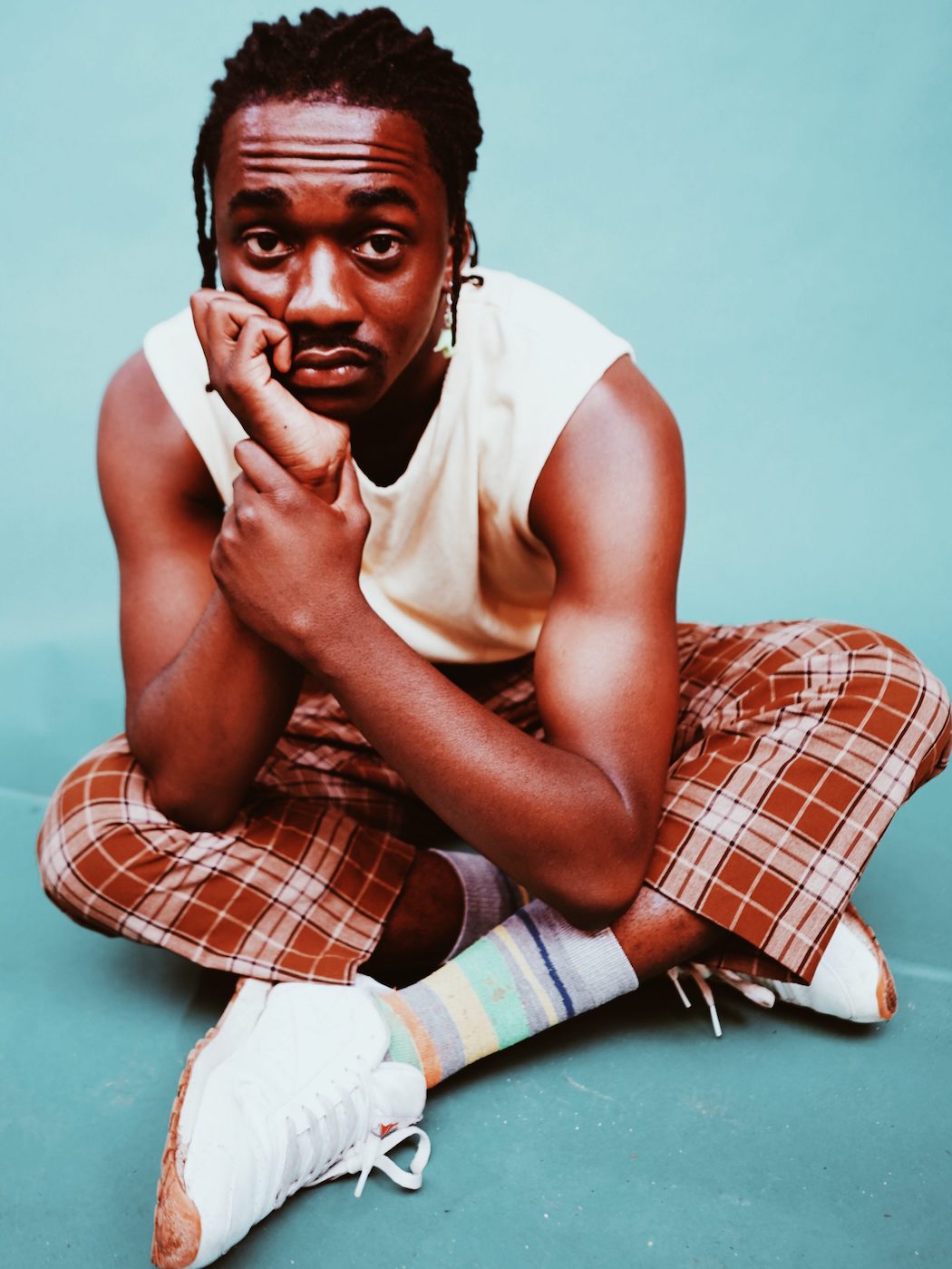
Most of the nationwide protesting came to a conclusion, I would say, around the end of June. I know they're still happening here and there, but obviously we've transitioned into the next phase of dialogue, if you will. Does anything make you hopeful for the future?
Ric Wilson: Yeah, there’s been so many things that make me hopeful, we raised $30 million for a bail fund for folks whom people think are criminals, supposedly criminals, and I was just like, “Okay, so we raise $30 million for people who are looting, then shit what can we do?” I feel like we as people can almost be the example to show people that, “Oh if we put our money in things that matter.” What if we were able to make $30 million every year for a certain cause, or to help a certain amount of people do certain things?! What if one year it’s like, “We are working on property,” the next year it’s homelessness. You know what I mean? I feel like that makes me excited, seeing so many people coming together and then really thinking about shit to say, “Hey, I guess it makes sense to defund the police, I don’t see why not.” I think that’s very inspiring and exciting, and I love the collective rage that’s happened, honestly I love the collective rage that’s happening right now.
That's true.
Ric Wilson: One thing that’s making me excited is that people are still on it and wanting change to happen. One thing that makes me nervous or on edge, it’s that… There are people that really still believe in the justice system for some reason, and if they don’t convict these cops like people want them to, there’s going to be another uprising, times ten. And I’m excited for it to happen, but I’m also nervous for it to happen, ’cause I know for sure people will team up, and unfortunately a lot of people are gonna get hurt on both sides of the fight.
A lot of people think it’s probably going to be a civil war, Trump; I don’t think so. They thought that they saw chaos when we die. It’s gonna be mass chaos… I remember they came out with the non-indictment of Mike Brown, people protested from November until January 2nd. And people weren’t even blowing shit up then, so now we have to think about it, we’re all in some other shit, America is on the next level, every other country that organizes shut shit down, it’s like people have realized, “Damn, we get together, just start burning shit down.” If they don’t do what people want them to do… They were crying about Target, it’s gonna be insane. So that’s one thing I’m a little nervous, on edge about, but not worried, not scared, because people don’t scare me, my neighbors don’t scare me.
Regular, everyday people don’t scare me, but I am like, I’m excited and nervous. It’s also an election year, I’m on edge every day…
I hear you, and couldn’t agree more. These times are not easy, but they feel important and impactful – I hope that’s real. To finish up, are there any other artists that you're listening to? Especially in the Chicago scene, because that’s your family, that's where you're from, and that's such a big part of your life? Who would you recommend to our readers?
Ric Wilson: Oh my God, yes, I listen to a lot of different people, I have listened to Beach Bunny a whole lot, and I don’t know Beach Bunny personally, but they’re from Chicago… I would definitely love to meet Beach Bunny, so I hope she hears this – she’s super dope. I was listening to Snail Mail, not from Chicago; I listen to Phoebe Bridgers’ new album, Big Freda, Ezra Furman, Channel Tres. Raleigh Ritchie is a friend of mine from the UK, he also plays Grey Worm in Game of Thrones, he dropped a new album recently that’s really good. I’ve been listening to Perfume Genius, I don’t know them, but I’d like to meet them. I’ve been listening to Parcels, who’s like the Australian disco version of me. I’m also listening to this band called Your Grandparents. They’re super dope. Flo Milli is a rapper I’ve been listening to, she’s sick… I’ve listened to Peach Pit a whole lot. OHMME are from Chicago, they’re great friends of mine. I love Macie and Sima… And I’m listening to a lot of Fountains of Wayne because Adam passed away recently, and I didn’t know Adam, but he was so talented and so good at writing songs. So that is it.
Ric, thank you so much for your time today, I really appreciate it, and congratulations on all the music you have put out this year and all the music you're going to put out.
Ric Wilson: Thank you.
— — — —

Connect to Ric Wilson on
Facebook, Twitter, Instagram
Discover new music on Atwood Magazine
? © Michael Salisbury
:: Stream Ric Wilson ::

